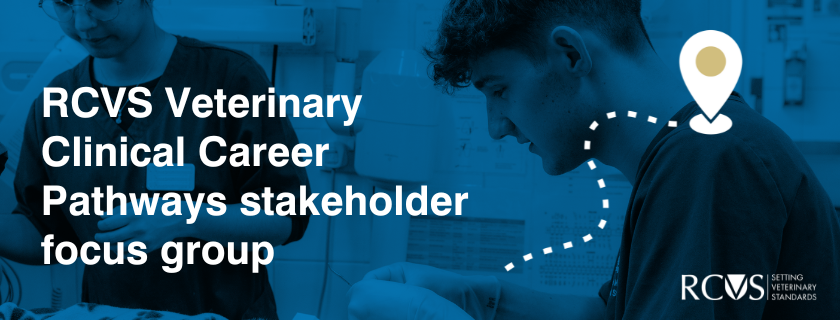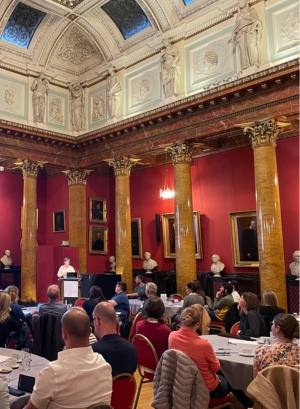-
-
- Advancement of the Professions Committee
- Standards Committee
- Audit and Risk Committee
- Education Committee
- Disciplinary Committee
- Charter Case Committee
- Preliminary Investigation Committee and Disciplinary Committee Liaison Committee
- Registration Committee
- Preliminary Investigation Committee
- Paper classification: some definitions
-
-
-
-
- About extra-mural studies (EMS)
- EMS requirements
- Information for vet students
- Information for EMS providers
- Information for vet schools
- Temporary EMS requirements
- Practice by students - regulations
- Health and safety on EMS placements
- EMS contacts and further guidance
- Extra-mural studies fit for the future
-
-
- Code of Professional Conduct for Veterinary Surgeons
- Code of Professional Conduct for Veterinary Nurses
- Contact the Advice Team
- XL Bully dog ban
- 'Under care' - guidance
- Advice on Schedule 3
- Controlled Drugs Guidance – A to Z
- Dealing with Difficult Situations webinar recordings
- FAQs – Common medicines pitfalls
- FAQs – Routine veterinary practice and clinical veterinary research
- FAQs – Advertising of practice names
- GDPR – RCVS information and Q&As
-
- Accrediting veterinary degrees
- Accrediting veterinary nursing qualifications
- Reasonable adjustments for student vets
- Health and disability in veterinary medicine study and practice
- The role of the veterinary schools and the RCVS
- Reasonable adjustments and the Equality Act 2010
- Reasonable adjustments and Day One Competences
- Examples of reasonable adjustments for vet students
- Annex
- Reasonable adjustments for student vets - summary
- Reasonable adjustments for student veterinary nurses
- Health and disability in veterinary nurse education and training
- Reasonable adjustments for students and the UK disability discrimination legislation
- Educational assessment of veterinary nurses
- Roles of key stakeholders in the application of reasonable adjustments
- Examples of reasonable adjustments for vet nurse students
- Embracing reasonable adjustments for student vet nurses - summary
- External review of the RCVS by ENQA
- Requirements for remote and online student assessments
An update on the Veterinary Clinical Careers Pathway Project

With our landmark Veterinary Clinical Careers Pathway (VCCP) Project now well underway, we wanted to bring you an overview of the first two stakeholder workshop sessions held to discuss some of the key objectives of the project.
The sessions, which took place in London on 3 May 2024 and Edinburgh on 20 June 2024, gave people from across the spectrum of the veterinary professions the opportunity to feed into the development of the VCCP.
In this feature:
Background to the sessions
The VCCP was set up following the November 2023 meeting of RCVS Council and encompasses three workstreams which will seek to develop new career routes and roles in the future for veterinary surgeons in general practice.
The three workstreams are:
- Workstream 1: The development of a veterinary specialty training programme in primary care that will, in turn, lead to a new ‘Specialist in Primary Care’ status.
- Workstream 2: The definition of veterinary clinical roles to develop clear guidance for the profession and wider public on the different clinical career statuses available to veterinary surgeons and what the focus and responsibilities of those statuses typically entail.
- Workstream 3: The development of flexible and accessible routes for specialist training so that it can be widened beyond the typical internship/residency model, to include training models more accessible from primary care practice, and for those at different career and life stages.
Considering the large-scale nature of the project – which will take place over a number of years – it was decided that these first two workshop sessions would hone in on some of the more granular aspects of workstreams 1 and 3.
London Stakeholder event
The aim of this event was to gather stakeholder’s thoughts and insights on the purpose of primary care specialty training, the potential impact and advantages to the profession, as well as any risks or unintended consequences. Stakeholders also discussed what appropriate content for this training might be, and explored potential learning environments and prerequisites for how the training might be implemented.
The discussions were framed around the following objectives for Workstream 1:
- Establish the overarching purpose of the training programme, through consideration of the needs of the workforce, the profession and the scope and focus of veterinary care services.
- Identify the intended learning outcomes of the training in terms of the clinical and professional knowledge, skills and behaviours required to fulfil the role of Specialist in Primary Care.
- Identify suitable learning environments for the training.
- Establish the required mechanisms of supervision and support for vets on the training programme.
The questions that participants discussed during the day were:
- Why should speciality training in veterinary primary care be developed?
- What ‘problem(s)’ may specialty training in veterinary primary care address?
- What areas of animal health and welfare will the training support?
- What might be the impact of specialty training in veterinary primary care?
- What benefits could it bring to the profession and the public?
- What advantages could this bring (as opposed to the current system): for patients, the public, the profession?
- What might be the unintended consequences and how they could be mitigated.
- On what should the training focus?
- What should specialty training in veterinary primary care include in terms of clinical areas, i.e. knowledge (breadth / depth), skills and performance.
- What should the training include in terms of professional skills, leadership etc.?
- Discuss potential learning environments for specialty training in veterinary primary care, including:
- Current types of practice environments.
- Placements in larger/smaller practice environments.
- Hybrid/remote options for learning.
Edinburgh workshop
The second stakeholder event in Edinburgh revisited some of the objectives of Workstream 1 regarding stakeholder input for the development of a purpose statement and draft syllabus, as well as inviting suggestions for Workstream 3.
The following objectives from each workstream were discussed by stakeholders at the event.
Workstream 1:
- Establish the overarching purpose of the veterinary primary care specialty training programme, through consideration of the needs of the workforce, the profession and the scope and focus of veterinary care services.
- Identify the intended learning outcomes of the training in terms of the clinical and professional knowledge, skills and behaviours required to fulfil the role of Specialist in Primary Care.
Workstream 3:
- Consider the strengths, weaknesses, opportunities and threats (SWOT) of different learning environments for clinical specialty training, with regard to learner support and supervision, access to appropriate clinical content and assessment.
- Explore the barriers faced by vets who feel unable to commit to an internship/residency programme, and how these might be overcome.
The questions that participants discussed during the day were:
- Consider what the purpose statement for the veterinary primary care specialty training might include.
- What should the veterinary primary care specialty training focus on?
- What should this training include in terms of clinical areas, i.e. knowledge (breadth/depth), skills and performance.
- What should the training include in terms of professional skills, leadership etc.?
- What are the strengths, weaknesses, opportunities and threats (SWOT) of different learning environments for clinical specialty training?
- What are the barriers faced by practitioners when considering whether they are able to commit to an internship/residency programme?
- What can be done to overcome those barriers?
- What are the potential alternatives to internships/residencies?
Discussions and conclusions
Both the London and Edinburgh workshops were full-day events, each with around 70 attendees and so the discussions were wide and varied, as were some of the ideas given for the RCVS to meet its stated objectives.
However, the conclusions can be grouped into some key themes that emerged from the discussions, along with some next steps for the RCVS to consider as it progresses with the project.
These were:
- Specialist training in primary care: While attendees had some concerns about the name GP Specialist, a majority were supportive of the overall principle, and it was felt that the new specialist status in primary care could promote a holistic approach to patient care. Stakeholders discussed how a new, structured specialty training programme in veterinary primary care could provide vets with a way of obtaining the depth and breadth of experience currently gained by some vets over decades spent in different practice environments, in a more focused and efficient way to enhance career progression and professional development.
There were many discussions about potential appropriate learning environments and how supervision, coaching and support for such specialist trainees would work. Some attendees were involved in supervising RVNs and felt that there could be learning points from VNs in how the clinical supervisor role is working in this environment. There was a strong feeling that a reform of structures within the profession was needed, including corporate practices, universities and private referral centres, but it should all be underpinned by improvement to animal welfare. There were some concerns about the potential financial impact on practices, including the risk of inequalities with regard to small independent practices, and the potential for public confusion (although this should be addressed through VCCP workstream 2 work). It was, however, felt that the training would offer clear career advancement pathways and empower veterinary primary care specialists to establish closer professional networks, enhance collaboration, contribute to research and discussions and be better recognised for the value they bring to the profession.
- Flexible pathways: Attendees discussed how flexible pathways were important for the future of the profession, but recognised that there were some concerns about the quality and standards of flexible specialist training that needed to be addressed if these were to be adopted more widely. Delegates suggested that more information was needed in order to understand what flexibility means. They also wanted an evidence review of the previous RCVS diplomas to be carried out as part of the project. Several people emphasised that there were already alternative routes to specialisations and that greater understanding and awareness of alternative pathways offered by European colleges was necessary. It was important to note that not all specialties are the same, and that some may be able to be completed flexibly more easily than others.
- Clarity: It was clear from discussions throughout each stakeholder day that clarity was needed for the public so that they could understand each role within the veterinary team – such as specialists and Advanced Practitioners. Further clarity was also needed around referrals, such as who can refer and who can accept referrals. Clarity and guidance on roles within the profession will be developed as part of Workstream 2.
The proposals are still under development and the working group has further increased the number of opportunities for veterinary surgeons to get involved and help shape the proposals. A further two stakeholder days will be held this year, in Wales and Northern Ireland. We have also announced several online sessions, to provide those practitioners who may be unable to get a day away from practice to contribute to the discussions. These also include sessions targeting specific groups, such as equine or farm vets, remote / rural vets, independent practitioners, Advanced practitioners, specialists, and student, new graduate and early career vets. The VCCP Working Group will consider all of these discussions in the development of proposals for further consultation.
For more information on upcoming VCCP workshops, please visit our events page and search for ‘Veterinary Clinical Career Pathways’.
August 2024